What to consider when getting new bed sheets
Before we get into all the different materials, we'd like to cover the basics. More precisely, we'd like to talk about how much one bed sheet material can differ from another one and whether you should care. And once we've done that, you'll have a better sense of scale when we start talking about specific features. So, let's get down to business!
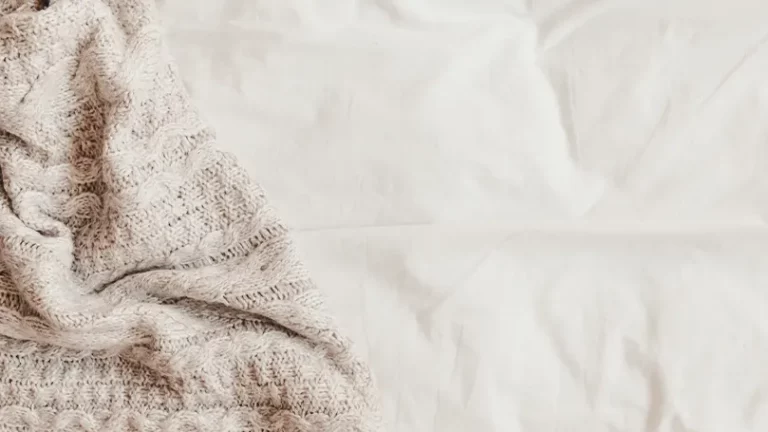
The material
Of course, the biggest differentiator is the material used to make the bed sheets. Cotton sheets won't behave in the same way as bamboo sheets. And if we get into specifics, Pima cotton won't behave in the same way as Supima cotton. This might seem confusing at first but it's pretty simple once you know the basics.
But we'll get into every specific material in more detail later on. For now, we just want you to take a mental note. And that's why you should always first look at the material when shopping for new bed sheets! Before the price, the brand, or anything else. After all, if the material doesn't suit your needs, no other feature can make up for it.
Ideally, you also want to look into the product specifications. This is because sheets can sometimes have the phrase “cotton sheets” in the title but actually be mostly synthetic fabric. And there's a big difference in performance between a 100% cotton sheet and a 50/50 synthetic mix. So, keep an eye out!
Breathability
Although all of the following features will be largely influenced by the material and the weave of the bed sheets, we want to give them special attention. And that's because people might underestimate how important these features are in the long run.
For example, the difference between breathable and non-breathable sheets can completely change your mornings. That's because non-breathable sheets can make it feel like you slept in a microwave. And, realistically, it's difficult to start the morning off right if you wake up in a sweat with your pyjamas/shirt sticking to your back.
Of course, this will be a bigger issue for some than others. And having the best duvet for hot sleepers is just as important as having breathable sheets. But as a general rule of thumb, if you notice that you tend to get hot during the night – look for sheets that will let your skin breathe.
Moisture wicking
Since this feature usually goes hand-in-hand with breathability, we want to talk about it next. Even with the most breathable sheets, you can still break a sweat when sleeping in the summer or if you share the bed with someone who sleeps hot. And in these cases, having moisture-wicking sheets can be a lifesaver!
Just like the name implies, moisture-wicking refers to the property of certain fabrics to move the moisture away from your body instead of absorbing it. This in turn can then guarantee fresh mornings even during the hottest of nights.
Softness
Softness is important for two main reasons. Number one, it largely dictates your comfort level during the night. And this is especially true if you prefer sleeping naked. But as a general rule, the softer the sheets, the easier it will be to snuggle in and get some proper rest.
However, there's another very important aspect so softness. Namely, if you have sensitive skin, rougher sheets can cause some issues. That's because rougher textures can make you break out or have a rash, especially if you tend to toss and turn. And some materials are generally just a lot better at keeping your skin supple than others.
Price
While you typically don't associate bed sheets with luxury, the difference in price can be surprisingly big. In fact, Egyptian cotton sheets, for example, can be double or triple the price of most standard sheets. With that being said, it's usually for good reason.
As we'll discuss later on, how the sheets are made can also vary quite a bit. While some are just made in a factory in 10 minutes, silk sheets take meticulous effort and a lot more time. So, we suggest deciding upfront what you value more – budget-friendly sheets or high-quality sheets.
This is because the last thing you'd want is to get to the store and be paralyzed by the number of options. Decide on a budget ballpark and try to stick to it. And once we get into the specific materials, you'll hopefully be able to gauge how big you want your budget to be based on the differences in performance.
Thread count
If you know what a thread count means, you might be surprised that it's this low on the list. And for those who haven't heard of this term before, a thread count is the number of threads woven into a square inch of a fabric. And typically, this results in a softer, higher-quality feel.
However, as we discussed in our thread count article, it's not always the end-all-be-all factor. And the best bed sheets don't have to have a high thread count. It's still worth keeping in mind, especially if you know what you're looking for, but the previous features are more indicative of quality most of the time.
Sustainability
While sustainability means very little to some, it can be the biggest selling point for others. So, if you're using a refurbished mattress and don't want any waste to come from your bedding products, some materials are a lot more tempting than others.
When it comes to natural fibres, the most common you'll see are cotton, bamboo and eucalyptus. However, when it comes to cotton bed sheets, look for those that have a certificate for being ethically sourced as there can be bad actors. But if you don't care about keeping the planet green, this shouldn't mean much.
Cotton sheets
Now we can finally get into the specific materials and see how they stack up. We're going to start things off with cotton sheets as they tend to be the most popular in the mid-to-high range. Plus, they're quite a formidable foe! This is just going to be a general look but if you want a more detailed guide on cotton sheets, we have that as well!
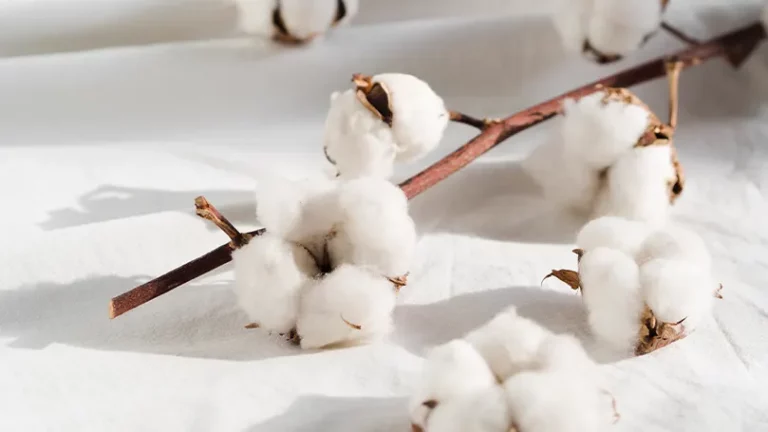
The advantages of cotton bed sheets
Let's start things off with the positives. While not every cotton bedding set will have all of these pros to the same level, here's what you should typically expect.
- Breathability: One of the major advantages of cotton sheets is their high level of breathability. Even a cotton mix typically won't make you sweat too much. But if you can get your hands on a high-quality, high thread count sheets set, it will put all other cotton sheets to shame! So, for hot sleepers, this is a big plus.
- Softness: While the softness of cotton does depend on the type and the thread count, it's rarely rough. That being said, you have to go for Egyptian cotton sheets if you want something comparable to silk sateen sheets.
- Variety: As you'll see later on, cotton sheets come in all shapes and sizes! And when compared to bamboo sheets or eucalyptus sheets, you have a lot more freedom when choosing. This also means that the price can vary quite a bit.
The disadvantages of cotton bed sheets
Now that we've had an overview of the positives, let's talk about the potential downsides of getting cotton sheets. Again, they don't apply to every type of weave of cotton, so, take that into account.
- Misleading advertising: We've found that cotton sheets generally require a bit more research than some other materials. And that's because it's very easy to exaggerate features such as thread count when dealing with cotton sheets. This is because multi-ply threads can be used when making cotton sheets. On top of that, cotton-polyester bed sheets can be advertised as just cotton sheets.
- Many different subtypes – If you know the different cotton subtypes, this is a positive, as it just means more variety. However, your average Joe might be confused once phrases such as Pima cotton sheets start getting thrown around. But don't worry, we'll explain that too.
Different types of cotton
Since we've already mentioned how there are many different subtypes of cotton sheets, let's do a quick run-through of the 5 main categories and see how they differ from one another.
- Upland cotton sheets – These are the most common and are thus what you'll get most of the time. They're not bad but they're far from the best.
- Flannel sheets – Although flannel sheets can be made from other materials as well, they're still worth pointing out. Generally, they're ideal for colder weather and have a fuzzy texture.
- Jersey sheets – Not too common but rather tempting for some. Jersey sheets are recognisable for their high level of stretchiness.
- Egyptian cotton sheets – This is the luxury pick as it uses long-staple cotton and is typically the softest. That being said, it's also the most expensive.
- Pima cotton – Another long-staple cotton sheet, similar to Egyptian cotton. However, it's slightly lower quality but also slightly cheaper.
Linen sheets
Fun fact, linen is one of the oldest natural fibres on earth! It has even been said to be the material of choice when creating Roman togas. Of course, even the best linen sheets from back in the day are not nearly as good as the worst ones now. However, it might not be as popular these days as cultivating the flax plant and the subsequent manufacturing process can be quite costly. Nevertheless, here are the pros and cons of linen sheets.
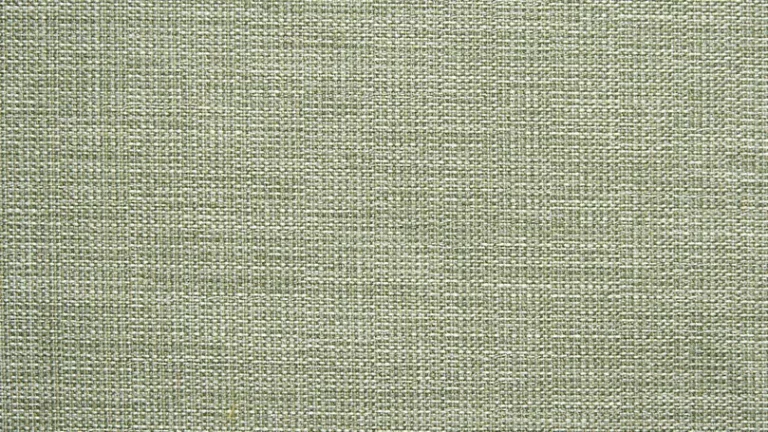
Advantages of linen
Let's first go over all of the positives of linen sheets. After all, linen is a premium material for bed sheets, so, it's important to know what gives it that status.
- Breathability – Just like with cotton, breathability is at the forefront when looking for reasons to buy linen sheets. That being said, it's difficult to say which one is more breathable.
- Very absorbent – It's said that linen sheets can soak up to 20% of their weight in water without even getting damp. This makes it quite a tempting choice for hot sleepers. That being said, some might prefer moisture-wicking instead of moisture-absorbing.
- Royal aesthetic – Visually, linen sheets differ significantly from their competitors. And if you're going for a rustic cabin design, no sheets can fit the theme better.
Disadvantages of linen
- Price – Linen is difficult to produce and it's a lot rarer than cotton. So, expect a slightly higher price point once you do find a linen set.
- Wrinkles – If you like wrinkle-resistant sheets, linen is not for you. While some love its wrinkled aesthetic, others might despise it.
Silk sheets
Silk bedding has been in the upper echelons of comfort for a while now. However, do you actually know why that is? Well, let's break it all down. And if you want a more in-depth article on why you should get silk sheets, we have an entire article on that topic.
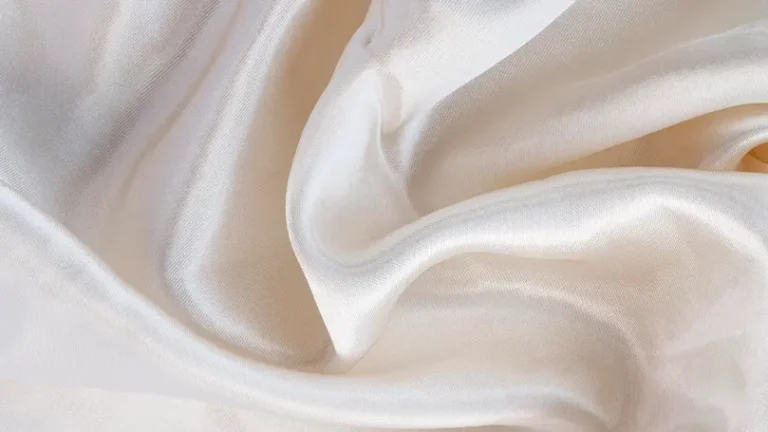
The advantages of silk
As always, we're going to start off with the pros of getting silk sheets. Just like linen, they're a premium option, so, it's important to know exactly what you're paying for.
- Softness – Although most bed sheets are soft, silk sheets take it to a different level. And that's because they can even keep your skin intact throughout the night since there's so little friction.
- Temperature regulation – All of the sheets so far have been breathable. However, silk sheets are a bit different as they can also keep you warm during the winter months. So, definitely a step up from the other two.
- Moisture-wicking – If the thought of your sheets absorbing your sweat is off-putting to you, silk sheets are the way to go. Plus, this further aids its skin-preserving properties.
Disadvantages of silk
Of course, no material is perfect. So, let's quickly go over a few reasons why you should look elsewhere when getting your new sheet set.
- You can easily damage it – While silk fibres are very durable in terms of strain, you can still damage the sheets rather easily. Stains are harder to get out and too much sunlight can make the sheets lose their colour.
- They're expensive – Silk is firmly in the luxury category. So, finding a cheap set can be an uphill battle.
Bamboo sheets
While bamboo sheets haven't been around for as long as cotton or linen, they're still rather impressive. And if you're from the UK, we especially recommend taking a look at Panda's bamboo bedding, since they're at the forefront of this fabric.
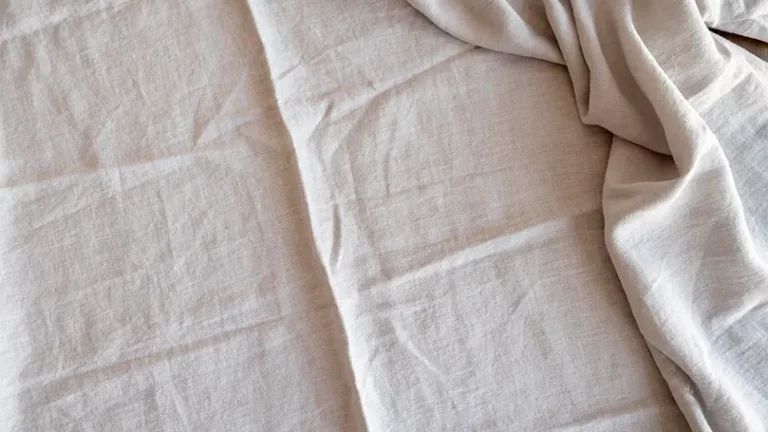
Advantages of bamboo
Since bamboo is relatively new to the game, it's important to know what makes it stick out. So, here are the advantages that come with owning a bamboo bedding set!
- Sustainability – Bamboo is one of the most sustainable materials you can use for bed sheets. So, if you're an environmentally-conscious person, this is a huge plus.
- Breathability – As a natural fibre, bamboo is also a lot more breathable than any synthetic you can find on the market.
- Soft to the touch – Bamboo is both naturally hypoallergenic and incredibly soft to the touch. Both of these factors make for a very nice sleeping environment.
- Wrinkle-resistant – Unlike linen, bamboo sheets don't wrinkle easily, if at all. And this is a huge benefit if you don't like wrinkles but hate ironing.
Disadvantages of bamboo
Since we gave it so much praise, it can seem like bamboo is the best material for bed sheets! However, it still has a few downsides you should be aware of.
- Limited choice – Currently, there are very few brands that are using bamboo for their bed sheets. So, you're bound to just a handful of choices.
- A bit delicate – While bamboo sheets are machine-washable, you need to take extra care of them. Namely, most kinds of cleaners or even just hot water can damage the natural fibres of bamboo.
Eucalyptus sheets
For all intents and purposes, eucalyptus sheets share a lot of features with bamboo sheets. Which, depending on what you thought about the previous segment, is either a big plus or a huge negative. Nevertheless, if you want a more in-depth overlook of eucalyptus bedding, we have the perfect article for you. But here's the gist.
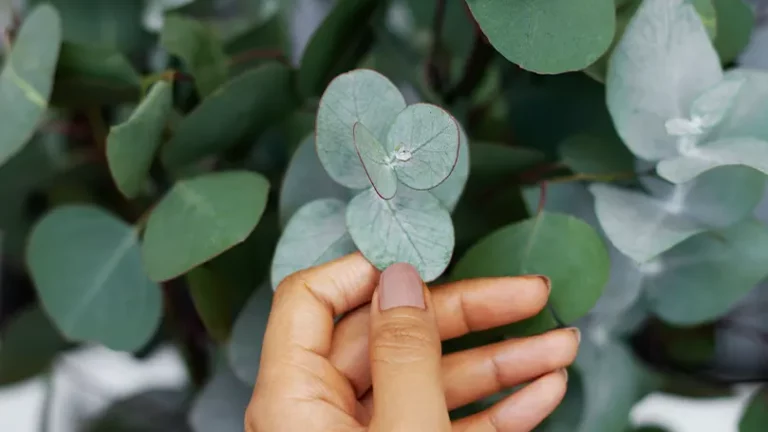
The advantages of eucalyptus
As we've mentioned, eucalyptus shares a lot of the same pros as bamboo. That being said, there are a few differences as well.
- Luxurious feel – Although bamboo is soft, eucalyptus feels a bit nicer to the touch. It's more comparable in feel to your favourite Egyptian cotton sheets than anything else.
- Sustainable – Like bamboo, eucalyptus wood pulp is sustainable and an excellent choice for environmentally-conscious people.
- Better for your skin – On a similar note to the softness, eucalyptus is also very good for your skin. This is because eucalyptus fibres are very round, leading to minimal friction and smooth skin in the morning.
- Wrinkle-resistant: Just like bamboo, eucalyptus does not wrinkle easily, meaning that you rarely if ever have to iron them!
Disadvantages of eucalyptus
Just like with bamboo, eucalyptus has some very tempting benefits. However, there are some aspects that are less than ideal. So, here's what you should consider.
- Limited choice – Although it's a bit easier to find eucalyptus than bamboo bedding, it can still be a hassle. So, if you like comparing dozens of different options, you're unlikely to find that with eucalyptus bedding.
- Special care – Eucalyptus sheets are very sensitive to heat. So, you have to take extra care when putting them in the tumble dryer or avoid it altogether.
Polyester
Whether you're getting a flat or a fitted sheet, you're bound to find plenty made from polyester. It's the most common material for bed sheets as it's easy to make and relatively cheap. But should you get them?
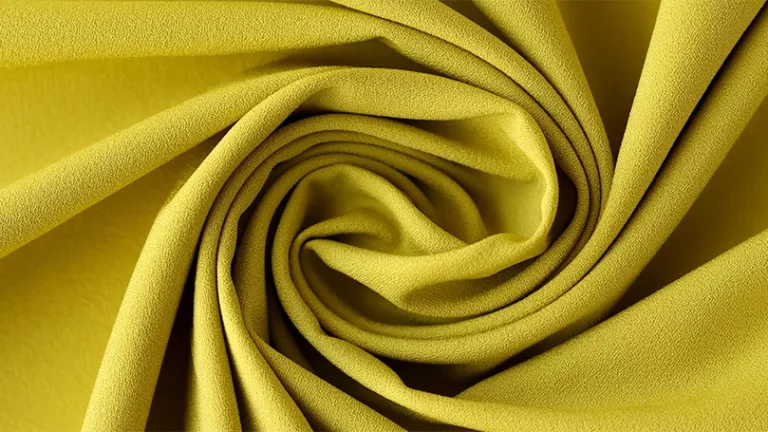
Advantages of polyester
- Variety – No other material can come close to the variety of polyester sheets. They come in all shapes, sizes, colours, and designs. So, you have a vast pool of options.
- Price – Although higher-quality polyester (like microfiber sheets) is a bit more expensive, most polyester sheets are very affordable.
- Durability – Polyester is a very durable material that you can chuck into the washing machine with little to no concern. And if you hate reading care labels, this is a big plus.
Disadvantages
If staying below budget is the requirement for getting a good night's sleep, polyester is perfect. However, it does have to make sacrifices in other departments. For example:
- Not breathable – Synthetic fibres tend to trap heat, resulting in a sweaty morning for hot sleepers.
- Not as soft – While we can't say that they're rigid, polyester sheets can't compete with silk or eucalyptus when it comes to softness.
What is the best material for bed sheets?
Now that we've gone through all the most popular materials used for bed sheets, it's time to answer the titular question. And, as you might have noticed, there's no single clear winner. So, instead of pulling a decision out of thin air, here's what we're going to do. We're going to go through some common selling points that apply to most people and single out the best and worst material for that category.
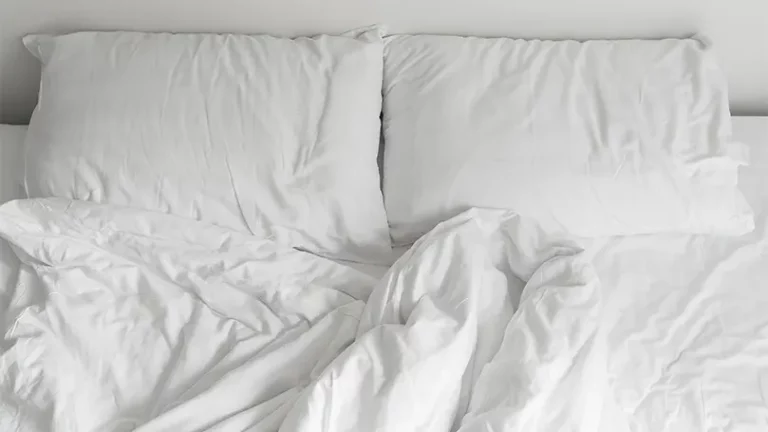
Conclusion
In conclusion, every material on the market shines in some departments and stumbles in others. So, if you want to know which is the best material for bed sheets, you simply need to identify which feature you care the most about. After all, if there was an objective winner, no other bedding material would still be in production!

Spread the word
Related products:
Recommended reading:


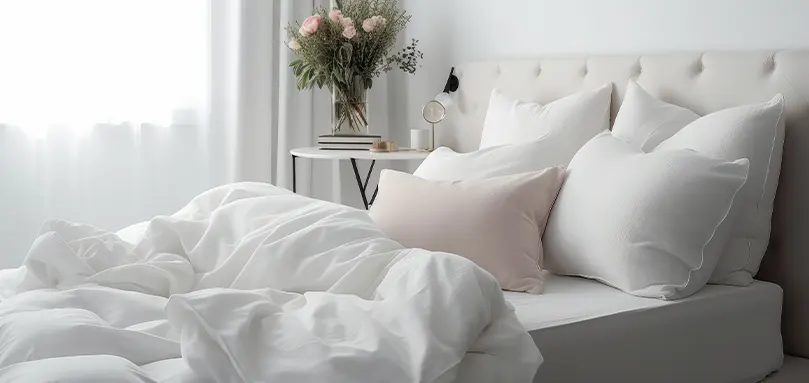













There are no comments yet
"*" indicates required fields